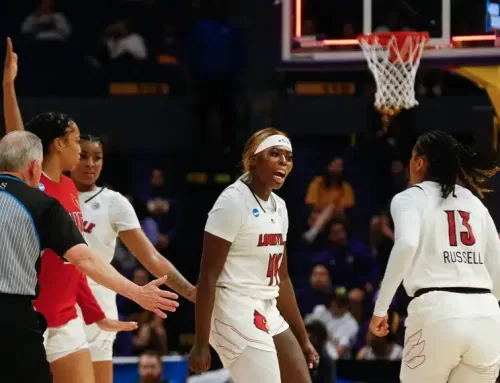By Brooke Moody–
In less than two months Americans will be making one of the most controversial votes in recent election years.
It is almost as if Hillary Clinton and Donald Trump have been facing off in a battle to see who can have the most scandalous headline of the year. With misconducts ranging from FBI investigations to inflammatory speech against millions of Americans, voters have their work cutout for them as they try to determine who is the better candidate.
Leading up to the election, The Cardinal will look at each candidate’s views on topics such as taxation, equality actions, foreign affairs and health care.
The issue: The Economy
According to the Pew Research Center, 84 percent of voters in a survey said that the issue of the economy will be very important to them during this election. Considering that the U.S. is more than $19 trillion in debt, and ever growing on the U.S. National Debt Clock, Americans have ample reason to be concerned about the economic policies of the presidential candidates.
Only eight years removed from the 2008 Great Recession, America is still rebounding and The DOW continues to mimic a roller coaster in the aftermath. Though the economy has seen improvement, Americans have yet to feel warm and fuzzy about it.
The current economic climate has had immense impact on federal and state aid funding and taxation. Kentucky colleges, and therefore students, recently felt the impact when Governor Matt Bevin cut university and college funding by two percent. As a result, students have seen tuition increases, RSOs have experienced budget reductions and program funding has decreased.
U of L students have felt the brunt of the current economy and students can expect the burden to increase when they graduate.
The candidates and their stances:
Hillary Clinton
From the beginning, Clinton has laid out a highly detailed plan for the economy to combat the issues that plague Americans of the middle and lower classes. Details of her plan include:
- Implementing a tax system that would ensure wealthy Americans, Wall Street and large corporations pay their share of taxes
- Simplifying taxes for small businesses to ensure their ability to grow
- Reducing the tax burdens for the working class, including issues of health care affordability and childcare costs
- Making debt-free college available to all Americans
- Providing relief for current debt through refinancing
- Raising the minimum wage
- Rewarding companies who invest in their employees and local community
Clinton’s plan indicates an economy that supports low and middle-income families. She also encourages continued positive foreign relations by creating a balance between trade regulation and enforcement and international agreement.
Criticism of Clinton’s stance includes the very element of which she establishes herself on. Clinton prides herself on the varied-ness and detail of her plan, but many pollers have expressed that this strategy does not speak to their real concerns – ultimately, not leaving them feeling warm and fuzzy.
Donald Trump
In contrast to Clinton, Trump has provided few details of his economic plan, instead opting to make broad generalizations. Details of his plan include:
- A tax reform that would simplify and lower taxes for everyone, specifically creating 3 tax brackets
- Reducing the income tax
- Limiting income tax to 15 percent for all businesses
- Excluding childcare from taxation
- Competing globally on corporation taxes to encourage investment in the U.S.
- Reviewing and restructuring regulations that inhibit businesses, including everything from hiring to safety
- Renegotiating NAFTA and other trade deals
- Implementing hearty trade regulations
- Maintaining current minimum wage
If Trump’s economic policies were to be enacted, Americans could expect to see a decrease in international trade and business moving overseas. In addition, minimum wage would remain at $7.25 per hour, meaning the opportunity for more job creation.
Though Trump is praised by supporters for his business experience and success, and vision to “Make America Great Again,” criticisms of his plan include concerns regarding the “how” of his plan. Trump has yet to define how he will put his plan into action. In addition, his stance on minimum wage will not aid low- and middle-income Americans as the cost of living rises.
Interestingly enough, Clinton and Trump’s campaigns share similarities, specifically the simplification of taxation and the reduction of childcare costs. But that does not allow voters to dismiss the other economic issues that are important to their futures. Clinton’s stance embodies at policy that would distribute wealth more equally through the population, benefiting those who are impoverished. Trump, on the other hand, feels that he is best suited to for the position due to his business experience, and voters feel they can trust him.
It will be important for voters to pay close attention to other issues addressed by the candidates because the reach of the economy goes beyond the financial sector. It is felt in and affected by the job market, business world, healthcare and much more.





